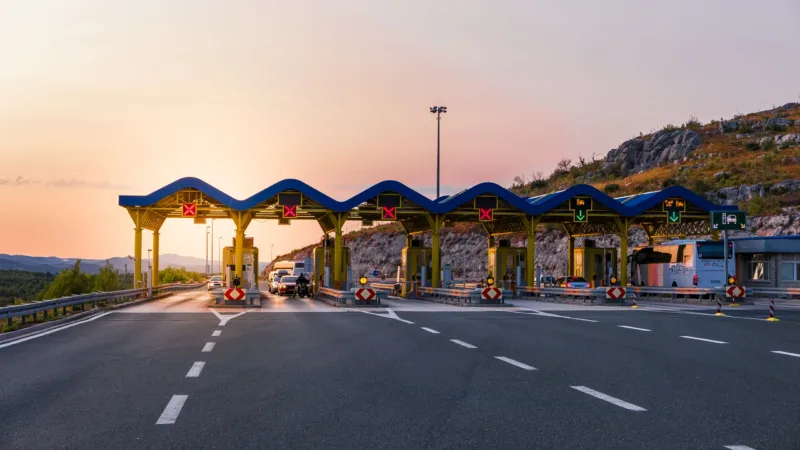Toll roads have come a long way since the days of tossing pocket change in a metal basket. Sure, that still happens in some places, but along modern toll roads there are electronic systems in place that can collect payments without slowing anyone down. These systems rely on sophisticated sensors, cameras, and public record databases to automatically bill the owners of any car that uses the road. But like any other automated solution, things can easily go wrong, and some of the toll money can be lost. So how can state tolling agencies ensure that they get all of the funds that many public services depend on?
Toll roads across America
There are hundreds of different toll roads across the United States, and while many share a unified system, most states use their own, isolated tolling programs. Six states still use traditional stop-and-pay stations, while another twelve don’t use toll roads at all. The money collected by tolling agencies is commonly used to fund local infrastructure maintenance and development programs.
While toll roads look and function differently in different areas, most use a similar frame of sensors to detect transponders attached to each car that passes through. These transponders are usually purchased by local residents who regularly use these busy roads or want to access a limited toll lane with reduced traffic. When they pass a tolling station, their transponder is recognized and tracked by the system for later billing. When a citizen initially buys a pass, enters their personal information, and sets up their transponder correctly, everything works great. But if any of those pieces are missing, the process goes awry.
When things go off the road
If a driver makes a mistake entering their information or somehow messed up their transponder, the automated system won’t work. And since these tolling systems are usually set up along the busiest highways and interstates, they encounter drivers coming from states with a different system (or none at all). Maybe they just don’t drive these roads enough to justify getting a pass, or maybe they are actually trying to avoid paying toll feeds by concealing their transponders. In any of these scenarios, automated tolling systems have to rely on backup systems that use high-speed cameras to catch the car’s license plate number. But like the rest of the system, those numbers are only as good as the database they are connected to.
How better public records can help
If a car passes through a tolling station without a transponder, tolling agencies use large databases of public information to find the home address of the car’s owner and send them a bill. But just like before, there is a lot that can keep them from collecting their due. If a car is from out of state, or recently changed owners, agencies might not have the address they need. Now, missing one small toll payment might not seem like a very big deal, but when you consider how many cars pass through any of these incredibly busy roads, it becomes clear just how much could be lost. That’s why state tolling agencies need access to the most up-to-date, national public records information.
CLEAR the roads
Using Thomson Reuters CLEAR, state and local tolling agencies can ensure that they have the most up-to-date public records data, including drivers’ licenses and home address data. This allows agencies to accurately send bills to tolling violators. And since CLEAR combines records from multiple states, agencies who manage popular toll roads near state lines can find and collect fines even if the violator lives beyond their own borders. By using the best public records database, these vital agencies can help protect and maintain the most important roads and utilities that citizens rely on every day. To learn more, schedule a free demonstration now.
Thomson Reuters is not a consumer reporting agency and none of its services or the data contained therein constitute a ‘consumer report’ as such term is defined in the Federal Fair Credit Reporting Act (FCRA), 15 U.S.C. sec. 1681 et seq. The data provided to you may not be used as a factor in consumer debt collection decisioning, establishing a consumer’s eligibility for credit, insurance, employment, government benefits, or housing, or for any other purpose authorized under the FCRA. By accessing one of our services, you agree not to use the service or data for any purpose authorized under the FCRA or in relation to taking an adverse action relating to a consumer application.








